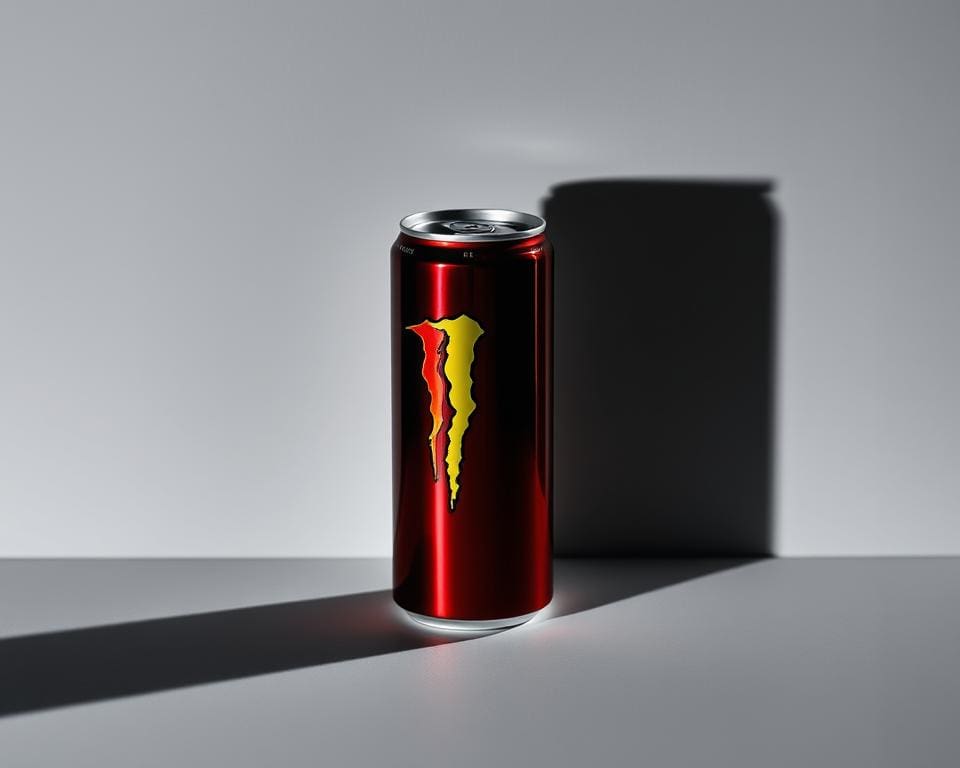The growing popularity of energy drinks in the UK has sparked crucial discussions regarding their safety, particularly concerning the question of whether energy drinks can cause cancer. As consumption continues to rise, statistics reveal that a significant portion of the population frequently consumes these beverages, often seeking a quick energy boost. However, alongside their appeal lies a range of potential health hazards that merit attention.
In this article, we will delve into the emerging concerns surrounding energy drinks cancer risk, drawing insights from health studies and reputable sources such as the NHS. By examining the ingredients commonly found in these drinks and exploring scientific research on their implications, we will foster a clearer understanding of this pressing issue. Join us as we navigate through the complexities of energy drinks and uncover the truth about their association with cancer risk.
Understanding Energy Drinks and Their Popularity
The surge in energy drinks popularity has transformed the beverage market in the UK, with these drinks becoming a staple for many individuals. Their appeal predominantly lies within young adults and professionals seeking a quick energy boost. Market research indicates that UK energy drink consumption has escalated significantly over recent years, reflecting changing lifestyles and a growing reliance on these drinks to combat fatigue and enhance performance.
The Rise of Energy Drinks in the UK
Data shows that UK energy drink consumption has leaped, with sales surging between 2015 and 2020. This trend signifies a new era where energy drinks are not merely viewed as ephemeral trends but as essential components of daily routines for countless consumers. The allure centres around the need for increased energy in demanding environments, from late-night studying to early morning work shifts.
Common Ingredients Found in Energy Drinks
To understand the effects of these beverages, one must explore the common energy drinks ingredients that contribute to their stimulating properties. Below is a summary of typical ingredients found in energy drinks:
- Caffeine: The primary ingredient known for its ability to boost alertness and reduce the perception of fatigue.
- Taurine: An amino acid believed to enhance physical performance and mental focus.
- Sugars: Often included to provide a quick energy source, though excessive consumption can lead to health concerns.
- B vitamins: Essential for energy metabolism and often included to promote overall vitality.
The careful composition of these energy drinks ingredients plays a crucial role in their effectiveness, matching the demands of consumers eager for quick results. As the UK energy drink consumption continues to rise, understanding these elements becomes paramount for making informed choices.

The Connection Between Energy Drinks and Cancer
The relationship between energy drink consumption and cancer risk is an increasingly significant area of research. Various energy drinks cancer studies offer insights into how the ingredients in these beverages may influence oncogenic potential. While the enthusiasm for these products continues to grow among consumers, the implications for long-term health are a topic of critical evaluation.
Scientific Studies Investigating Cancer Risks
Numerous scientific studies have sought to uncover the potential cancer risks associated with energy drinks. Research published in the Journal of Caffeine Research examined the effects of high caffeine levels and other common additives found in these beverages. Findings indicated that certain components could exhibit energy drinks oncogenic potential, thereby raising alarms among health professionals. Additionally, the British Medical Journal highlighted associations between energy drink consumption and various health complications, encouraging further investigation into the overall safety of these products.
Types of Cancers Potentially Linked to Energy Drink Consumption
Specific types of cancers may potentially connect with energy drink consumption, notably liver and kidney cancers. Some studies suggested correlations between the high caffeine content and the increased risk of developing neoplastic effects. Research continues to evolve, emphasizing the need for awareness regarding the consumption of these drinks. Public health discussions increasingly focus on how lifestyle choices, including energy drink intake, can influence cancer risk across diverse populations.
Can Energy Drinks Cause Cancer?
The question of whether energy drinks can lead to cancer ignites significant debate among health professionals and consumers alike. Given the increasing consumption of these beverages, it is crucial to delve into the energy drinks research findings and expert opinions surrounding the potential risks associated with their ingredients.
Key Research Findings to Consider
Recent epidemiological studies have unearthed various concerns regarding the malignant potential of certain components found in energy drinks. Some findings indicate a correlation between high consumption rates and instances of particular cancers, although more extensive research is required to establish a definitive link. Elements such as caffeine and artificial additives have been scrutinised, prompting discussions around their long-term effects on health.
Expert Opinions on Energy Drinks and Cancer Risk
Oncologists and nutritionists offer contrasting views on the energy drinks cancer opinions, which further complicates the narrative. Some experts emphasise that, while a direct causation is not firmly established, the cumulative impact of consuming such drinks may warrant caution. Others advocate for an evidence-based approach, stressing the necessity for further studies to fully comprehend the long-term implications associated with high consumption levels. Listening to these voices offers a well-rounded perspective on the ongoing conversation surrounding energy drinks and their potential cancer risks.
Energy Drinks and Their Carcinogenic Potential
The consumption of energy drinks has surged in popularity, prompting deeper scrutiny of their ingredients. Certain components found in these beverages have raised concerns regarding their carcinogenic potential. These concerns largely stem from unhealthy additives such as preservatives and artificial sweeteners, which may contribute to adverse health outcomes. Understanding the energy drinks carcinogenic ingredients is critical for consumers who need to make informed choices about their beverage options.
Understanding Carcinogenic Ingredients in Energy Drinks
Many energy drinks contain a range of chemicals that could pose risks to long-term health. Commonly found ingredients include:
- Preservatives, which help to prolong shelf life but may lead to unhealthy side effects.
- Artificial sweeteners, linked to various metabolic issues and potential tumourigenic properties.
- High sugar content, known to exacerbate health conditions such as obesity, a risk factor for cancer.
Research evaluating these energy drinks tumourigenic potential continues to evolve, shedding light on possible health impacts tied to these additives.
Comparative Analysis of Energy Drinks and Other Beverages
When considering the health risks associated with energy drinks, a drinks comparison against traditional options reveals significant differences. Carbonated soft drinks and coffee typically contain fewer concerning ingredients, positioning them as more acceptable alternatives for consumers wary of potential hazards. While both energy drinks and coffee deliver caffeine, coffee does not contain the same level of additives notorious for their carcinogenic properties. This analysis urges consumers to weigh their options carefully and consider less risky beverages that may better align with a healthy lifestyle.
Health Hazards Associated with Energy Drink Consumption
Energy drinks have gained tremendous popularity, but their consumption poses significant health risks. Understanding the energy drinks health effects reveals a range of immediate consequences that can severely impact individuals’ wellbeing. The surge in energy drink consumption aligns with a growing number of reported health issues linked to these products.
Immediate Health Effects of Energy Drinks
Upon consumption, energy drinks can lead to various immediate energy drinks hazards. Some common effects include:
- Palpitations: Many users report irregular heartbeats, which can be alarming and indicate potential cardiovascular strain.
- Insomnia: The high caffeine content often leads to disrupted sleep patterns, creating a cycle of fatigue and reliance on these drinks.
- Anxiety: Increased heart rate and stimulation can contribute to heightened feelings of anxiety, affecting daily life and mental health.
Healthcare professionals have documented numerous cases where individuals experienced severe reactions after consuming energy drinks, highlighting the urgent need for caution.
Long-Term Health Implications
The long-term energy drinks impact encompasses a broader scope of health issues. Research suggests that consistent consumption may lead to serious health complications, including:
- Cardiovascular Problems: Continuous intake can strain the heart, increasing the risk of conditions such as arrhythmias or hypertension.
- Metabolic Syndrome: Studies link energy drink consumption to an increased risk of developing metabolic disorders, impacting overall health.
These long-term consequences remind us of the crucial importance of making informed choices regarding energy drink consumption. Awareness of the potential health hazards can empower individuals to prioritise their wellbeing.
Making Informed Choices: Energy Drinks and Your Health
As consumers increasingly turn to energy drinks for a quick boost, it is critical to approach their consumption with a discerning eye. Energy drinks health awareness is paramount for individuals wishing to maintain their wellbeing. By understanding the ingredients and potential health implications, consumers can make energy drinks informed choices that align with their lifestyle and health goals.
Moderation is key when it comes to energy drinks. Adhering to energy drinks consumption guidelines can help mitigate any adverse effects associated with excessive intake. Always examine nutritional labels carefully, and be wary of high caffeine and sugar content, which can lead to serious health concerns. Consider healthier alternatives, such as green tea or naturally occurring energy sources like nuts and fruits, which provide sustained energy without the drawbacks.
Engaging with recommendations from health organisations and dieticians can further empower consumers in their decision-making process. They often emphasise the importance of being conscious of what goes into our bodies, encouraging a critical assessment of energy drink ingredients. By fostering health awareness and understanding the consequences of consumption, individuals can navigate their choices more effectively, ultimately fostering a healthier lifestyle.









